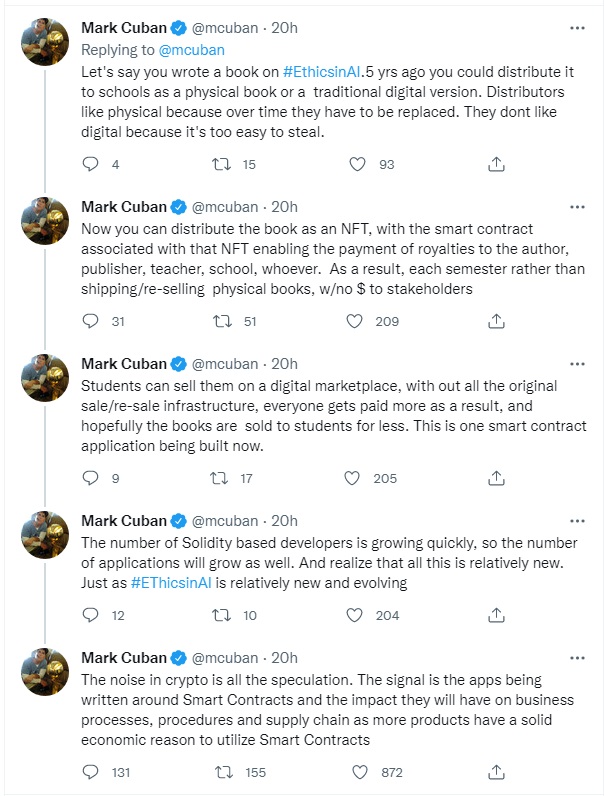So the “noise” in crypto and other blockchain technology is all the “speculation” according to billionaire tech boss and Shark Tank star Mark Cuban. But Cuban cautions that those looking merely at the noise aspect might miss what entrepreneurs see — and that’s the “signal.”
The signal is the underlying smart contract technology and how it will be used as a practical tool to solve real world problems, and to create entirely new ways of doing business. To illustrate his point about how NFTs (Non-Fungible Tokens) can be used to tackle thorny real world challenges, Cuban chooses the distribution of text books as an example.
In 5 easy steps — a series of concise tweets that together function like pretty good pitch deck for the development of this aspect of NFT technology –Cuban explains below. There’s a full picture below the tweet of Cuban’s explanation/scenario.
Put differently, unless you are entrepreneurial and looking for new ways to do business, you will have a hard time telling the signal from the noise. https://t.co/sbLAzA8ZS1
— Mark Cuban (@mcuban) January 12, 2022
It may help a reader trying to get a handle on this to know what a Solidity developer is, since Cuban mentions its growth. The Blockchain Council describes a Solidity Developer as “one who uses the object-oriented Solidity language to build and deploy smart contracts on Ethereum based applications. Solidity is the native language of Ethereum which gives enterprises a complete advantage of launching projects on the Ethereum Blockchain platform.”

The big payoff, as Cuban explains in the textbook scenario he envisions, is that students, teachers, schools, authors and publishers all benefit: “Now you can distribute the book as an NFT, with the smart contract associated with that NFT enabling the payment of royalties to the author, publisher, teacher, school, whoever. As a result, each semester rather than shipping/re-selling physical books, w/no $ to stakeholders, students can sell them on a digital marketplace, with out all the original sale/re-sale infrastructure, everyone gets paid more as a result, and hopefully the books are sold to students for less.”
